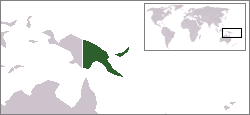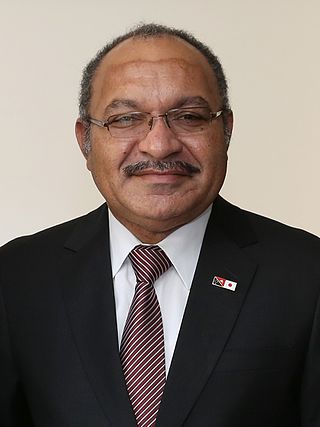Related Research Articles

Yom Kippur is the holiest day in Judaism and Samaritanism. It occurs annually on the 10th of Tishrei, corresponding to a secular date in September or early October.
Repentance is reviewing one's actions and feeling contrition or regret for past wrongs, which is accompanied by commitment to and actual actions that show and prove a change for the better.

Ash Wednesday is a holy day of prayer and fasting in many Western Christian denominations. It is preceded by Shrove Tuesday and marks the first day of Lent, the six weeks of penitence before Easter.

Confession, in many religions, is the acknowledgment of one's wrong thoughts and actions (sins). This may occur directly to a god, to fellow people, or to a person acting as a mediator for a god.

Penance is any act or a set of actions done out of repentance for sins committed, as well as an alternate name for the Catholic, Lutheran, Eastern Orthodox, and Oriental Orthodox sacrament of Reconciliation or Confession. It also plays a part in confession among Anglicans and Methodists, in which it is a rite, as well as among other Protestants. The word penance derives from Old French and Latin paenitentia, both of which derive from the same root meaning repentance, the desire to be forgiven. Penance and repentance, similar in their derivation and original sense, have come to symbolize conflicting views of the essence of repentance, arising from the controversy as to the respective merits of "faith" and "good works". Word derivations occur in many languages.
The National Day of Prayer is an annual day of observance designated by the United States Congress and held on the first Thursday of May, when people are asked "to turn to God in prayer and meditation". The president is required by law to sign a proclamation each year, encouraging all Americans to pray on this day.

Thanksgiving is a national holiday celebrated on various dates in the United States, Canada, Grenada, Saint Lucia, Liberia, and unofficially in countries like Brazil and Philippines. It is also observed in the Dutch town of Leiden and the Australian territory of Norfolk Island. It began as a day of giving thanks for the blessings of the harvest and of the preceding year. Thanksgiving is celebrated on the second Monday of October in Canada and on the fourth Thursday of November in the United States and around the same part of the year in other places. Although Thanksgiving has historical roots in religious and cultural traditions, it has long been celebrated as a secular holiday as well.

Dame Carol Anne Kidu, also known as Carol, Lady Kidu, is an Australian-born Papua New Guinean politician.

Lesbian, gay, bisexual, and transgender (LGBT) persons in Papua New Guinea face legal challenges not experienced by non-LGBT residents. Male same-sex sexual activity is illegal, punishable by up to 14 years' imprisonment, but the law is not enforced.

James Marape is a Papua New Guinean politician who has served as the prime minister of Papua New Guinea since May 2019. He has been a member of the National Parliament of Papua New Guinea since July 2007, representing the electorate of Tari-Pori Open in Hela Province in the highlands. He has held Cabinet Posts as Minister of Education (2008–2011), Minister of Finance (2012–2019), and Minister of Foreign Affairs (2023-present). Marape entered the 2022 elections under the banner of Pangu Party and won more seats than any other party. He was therefore entitled to form the government. His new government was elected unopposed by the new parliament.
This controversy centers on the first Hindu opening prayer offered in the United States House of Representatives by Venkatachalapathi Samuldrala, a priest of Shiva Hindu Temple in Parma, Ohio. This prompted criticism from the Family Research Council, a conservative Christian group, who protested against it in conservative media, in turn generating responses from their opponents and leading to serious discussions over the role of legislative chaplains in a pluralist society.

The monarchy of Papua New Guinea is a system of government in which a hereditary monarch is the sovereign and head of state of Papua New Guinea. The current Papua New Guinean monarch and head of state, since 8 September 2022, is King Charles III. As sovereign, he is the personal embodiment of the Papua New Guinean Crown. Although the person of the sovereign is equally shared with 14 other independent countries within the Commonwealth of Nations, each country's monarchy is separate and legally distinct. As a result, the current monarch is officially titled King of Papua New Guinea and, in this capacity, he and other members of the royal family undertake public and private functions domestically and abroad as representatives of Papua New Guinea. However, the King is the only member of the royal family with any constitutional role.
A Day of Prayer is a day allocated to prayer, either by leaders of religions or the general public, for a specific purpose. Such days are usually ecumenical in nature. They usually are treated as commemorative in nature, rather than as actual liturgical feast days or memorials.
Buß- und Bettag was a public holiday in Germany, and is still a public holiday in Saxony. In Germany, Protestant church bodies of Lutheran, Reformed (Calvinist) and United denominations celebrate a day of repentance and prayer. It is now celebrated on the penultimate Wednesday before the beginning of the Protestant liturgical year on the first Sunday of Advent; in other words, it is the Wednesday that falls between 16 and 22 November. However, it is not a statutory non-working holiday any more, except in the Free State of Saxony. In the Free State of Bavaria, it is a school holiday only.
Cherubim Alfred Dambui, was a Papua New Guinea politician and Roman Catholic bishop. Dambui became the first Sepik to be ordained a Catholic priest in 1974 and served as the first premier of East Sepik Province beginning in 1976. Dambui also served as the auxiliary bishop of the Roman Catholic Archdiocese of Port Moresby, Papua New Guinea.

Peter Charles Paire O'Neill is a Papua New Guinean politician who served as the seventh Prime Minister of Papua New Guinea from 2011 to 2019. He has been a Member of Parliament for Ialibu-Pangia since 2002. He was a former cabinet minister and the leader of the People's National Congress between 2006 and 2022. He resigned his position as prime minister to avoid a vote of no confidence, and he was succeeded by James Marape. O'Neill won re-election to the National Parliament of Papua New Guinea in 2022 in the first round with a large majority, which is unusual in the country.

Corruption is rife in Papua New Guinea (PNG). According to The Economist, "PNG's governments are notorious for corruption, and ever run the risk of turning the state into a fully-fledged kleptocracy".

Israel–Papua New Guinea relations are bilateral relations between Israel and Papua New Guinea. Israel and Papua New Guinea established diplomatic relations in 1978, about three years after Papua New Guinea was granted independence.
The National Pledge of Papua New Guinea is often recited around Papua New Guinea throughout a range of government-based organisations. It is often recited at both primary schools and high schools before the commencement of classes each day; in the National Parliament on each sitting day immediately after prayers; in each Provincial Assembly and Local-level Government Assembly on each sitting day immediately after prayers and at all official celebrations on the day fixed under the Public Holidays Act 1953 to commemorate the attainment by Papua New Guinea of Independent Sovereign Nationhood.

The Martyrs of New Guinea were Christians including clergy, teachers, and medical staff serving in New Guinea who were executed during the Japanese invasion during World War II in 1942 and 1943. A total of 333 church workers including Papuans and visiting missionaries from a range of denominations were killed during the invasion.
References
- 1 2 3 "Day of Repentance puzzles Papua New Guinea", Australian Broadcasting Corporation, 26 August 2011
- ↑ "Christians unite in prayer", The National, 29 August 2011
- ↑ "Priest tells parishioners to think about future", The National, 29 August 2011
- ↑ "Bringing PNG to God", Post Courier, 30 August 2011